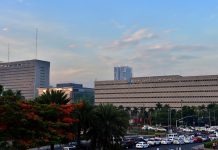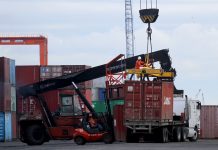Money sent by overseas Filipino workers (OFWs) to the Philippines are not covered by the proposed Comprehensive Tax Reform Program (CTRP) of the Department of Finance (DOF) as the government has no legal jurisdiction over remittances sent from abroad.
Finance Undersecretary Karl Kendrick Chua issued this clarification in separate congressional hearings, in response to erroneous reports that OFW remittances would be taxed under the first package of the CTRP, which is contained in House Bill No. 5636.
Chua said in separate hearings of the Senate and House ways and means committees on the CTRP that the Philippine government has jurisdiction only over domestic remittances, which are not taxed, given that the Value Added Tax (VAT) imposed is not on the money sent but only on the transfer fees charged by remittance companies.
“We have to distinguish between the foreign and the domestic remittances. Those coming from abroad are not within our tax regime, so that is not [covered] (under the CTRP),” Chua said at a recent hearing of the Senate ways and means committee on the DOF-proposed tax reform plan.
He pointed out that under existing tax laws, transfer fees for domestic remittances have long been subject to VAT but have not been fully collected by the Bureau of Internal Revenue (BIR).
“Let me be clear, it’s not a VAT on remittance, it is VAT on the money transfer like all other services which has been VAT-able from before,” said Chua.
To plug this loophole, Chua said legal and tax experts have agreed that because such transfer fees are not explicitly exempted from VAT under the National Internal Revenue Code, then these should be subject to this consumption tax.
Chua said the BIR has advised the DOF that there is no need to amend the Tax Code to do this, and that only a revenue regulation needs to be issued to remind companies that transfer fees on domestic remittances are subject to VAT.
“The [money] transfers are being done in any kinds of businesses like pawnshops, which used to be only pawning. Now, they are also into money transferring. This is the gray area or loophole that we are correcting. But we were advised by the BIR …. to just clarify it through a regulation,” said Chua at an earlier hearing conducted by the House ways and means committee.
As for money sent by OFWs to the Philippines, Chua said the tax laws applicable to them would depend on the country of origin of the remittance.
Finance Secretary Carlos Dominguez III said in one of the public hearings on the CTRP that tax reform is expected to help reduce the poverty rate from 21.6 percent in 2015 to 14 percent by 2022, lifting some six million Filipinos out of poverty, and helping the country achieve upper middle-income status. Achieving this higher income status will require raising the country’s per capita gross national income from $3,550 in 2015 to at least $5,000 by 2022, or close to where Thailand is now.
Business tycoon Lance Gokongwei, 15 former DOF secretaries and undersecretaries plus five former National Economic and Development Authority (NEDA) directors-general have backed the CTRP.
Ex-DOF Secretaries Cesar Virata, Jose Isidro Camacho, Jesus Estanislao, Roberto De Ocampo, Jose Pardo, Cesar Purisima, and Juanita Amatong; ex-NEDA chiefs Arsenio Balisacan, Emmanuel Esguerra, Cielito Habito, Felipe Medalla, and Romulo Neri; and former finance undersecretaries Romeo Bernardo, Cornelio Gison, Lily Gruba, Milwida Guevara, Jose Emmanuel Reverente, and Florencia Tarriela, have signed a manifesto supporting the CTRP.
Ex-finance secretary Margarito Teves has also expressed his support for the CTRP during a recent House ways and means committee hearing.
Fifteen (15) foreign and local business organizations belonging to the Philippine Business Groups – Joint Foreign Chambers have also backed the tax reform program, and called on both Malacanang and the Congress to give it top priority in order to improve the country’s investment climate, create more jobs and attain economic inclusion.
The House of Representatives approved Tax Reform Acceleration and Inclusion Act (TRAIN) or HB 5636—by a 246-9 vote with one abstention last May 31 before the Congress’ sine die adjournment.
This bill, which had consolidated the DOF’s original proposal—HB 4774—with 54 other tax-related measures, seeks to make the country’s tax system simpler, fairer and more efficient by slashing personal income tax rates and, to fill up the consequent revenue loss, by adjusting excise taxes on certain products and broadening the VAT base.
Dominguez said he hopes the Senate would act swiftly on the bill when the Congress opens its second regular session in July and retain the original features of TRAIN as outlined in HB 4774.
“We can live” with HB5636, “but of course it’s better if we get more,” he said. (PNA)






